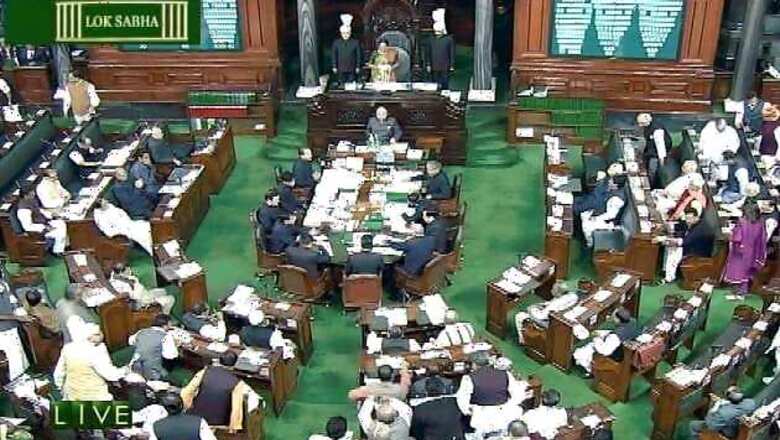
views
New Delhi: A Bill seeking to set up a regulatory authority having powers to recall products and cancel licences of defaulting companies, including e-tailers, was introduced in Lok Sabha on Monday.
The new Bill seeks to create a Consumer Protection Authority which will also have the power to initiate class suit against defaulting companies. It will fast-track the redressal of consumer grievances.
Consumer Affairs Minister Ram Vilas Paswan tabled the Consumer Protection Bill 2015, which seeks to replace a 29-year-old law and fast-track the redressal of consumer grievances, amid uproar by the Congress members over Lalit Modi and Vyapam issues.
The proposed law assumes importance as there is growing concern over safety of consumer products and services especially after the Maggi controversy.
The new bill, approved by the Cabinet on July 28, provides for a comprehensive framework for protection of consumer interest and will replace the Consumer Protection Act, 1986.
The bill comes against the backdrop of emergence of complex products and services in the era of growing e-commerce business in India that has rendered consumers vulnerable to new forms of unfair trade and unethical business practices, sources said.
The key features of the new bill include establishment of an executive agency 'Central Consumer Protection Authority' (CCPA) which will protect and enforce the rights of consumers.
"The authority will intervene when necessary to prevent consumer detriment arising from unfair trade practices and to initiate class action including enforcing recall, refund and return of products," sources added.
That apart, the bill has provisions for "product liability" if product/services causes personal injury, death or property damage and will take action against defaulting manufacturers or service providers.
For speedy disposal of court cases, the bill proposes "mediation" as an alternative dispute resolution mechanism.
The mediation will be under the aegis of consumer courts.
Explaining the rational behind bringing the new bill, sources said that misleading advertisements, tele-marketing, multi-level marketing, direct selling and e-tailing pose new challenges to consumer protection. Hence, there was a need to modernise the act to address the situation effectively.
The Bill also provides for stringent penalty, including life imprisonment in certain cases, sources added. The Consumer Protection Act 1986 was amended thrice earlier in 1991, 1993 and 2002.



















Comments
0 comment